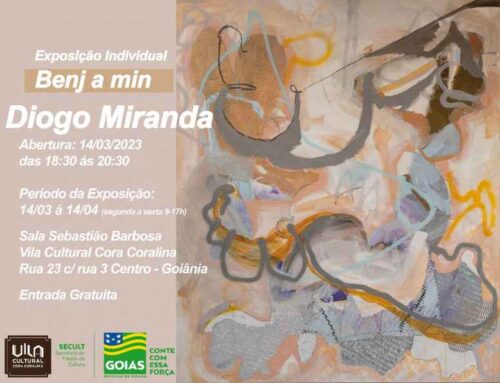In concurrence the following year, Justice William Brennan noted that this approach is consistent with the First Amendment only if it is applied without the resolution of doctrinal questions and without extensive inquiry into religious polity. However, in Jones v. Wolf (1979), the leading church property case to date, the Court specified that neutral principles, require a civil court to examine certain religious documents, such as a church constitution, for language of trust in favor of the general church. It has been suggested by an employee of the United Methodist Church denomination, who is not an attorney, that the Methodist Trust Clause within the Book of Discipline is universally enforceable and that local churches should not even think about challenging it when considering whether it should leave the denomination and leave its property. State-to-state there are many similarities in trust law, but it is important to remember that states, whether through jurisprudence or statutory instruction, create their own standards for trust law. The question in all of the cases will be whether there is valid express or implied trust under the state Trust Code. In eschewing the departure from doctrine approach, the Supreme Court drew attention to a new alternative. The United Methodist Trust Clause: Who Owns the Church Property? Occasionally, congregations or portions of congregations. /Count 2 Dedicated to fostering conversations about the global nature of The United Methodist Church, The materials presented and views expressed therein are those of the individual authors. Burial Grounds. This circumspection grants churches a degree of autonomy to govern themselves by religious terms. They do not guarantee or predict a similar result for any future matter. According to The United Methodist Churchs Book of Discipline, all local United Methodist churches hold their properties, real and personal, tangible and intangible, in trust for the benefit of the general church. Many deeds contain clauses that cause the churchs property to become the property of the denomination should the property no longer be used for denominational purposes. These cases show that the Supreme Court does not like to rule on questions of church property ownership. Over the past ten years, there have been numerous court cases where denominations have sued local churches and vice versa over who gets to keep the property when a local congregation withdraws. If you wish to learn more, please contact us at this link for a guide to Understanding the United Methodist Church Trust Clause and the most relevant considerations for local church leaders. Required fields are marked *. /I1 10 0 R The deed to each local church property has to be held by a governing body of the Church (either regional or national), or can be held by the local church itself, subject to something called a trust clause, which is in the churchs constitutional document, such as the denominations Book of Church Order, or laid out by a contract. 2506. They must take great care that, as state actors, their approach to resolving these disputes neither impinges on the right to engage in religious exercise nor has the effect of establishing a religion. Sell your Southern California church property. What Does It Mean For A Minister To Be Ordained? If such a separation were to take place, I believe it should happen at the General Conference level, where local churches could be given the option and the process to withdraw and keep their property. A North Carolina nonprofit helps churches convert property from >> Have you ever considered who owns the local church? The United Methodist Church is not a human, with the exception of individuals who own property in trust for unincorporated local churches (more on that in a future post), and it does not have legal claim over the assets owned by any of the humans associated with it. Simple theme. Finally, courts may look at the relationship between the parties and in at least one state that relationship may be used by the courts to determine that the church and the denomination functioned in an implied fiduciary relationship even though there was no express trust relationship between the parties. endobj The denomination clearly advocates that local congregations are free to leave, but, they must leave their property to the local annual conference. But it was not yet fleshed out. In the next blog, we will look at the concepts of an express or implied trust clause is valid within the United Methodist Book of Discipline. Though differences may be apparent and their impact palpable, subtleties may nonetheless spell the difference between property retention and forfeiture. The settlor transfers property to a trustee under certain agreed conditions, creating a fiduciary duty for the trustee. It permits the annual conference to direct the local church trustees to assign the deeds of church property to the proper legal representatives of a Pan Methodist church or another evangelical denomination. Let the attorneys of Dalton & Tomich, PLC help you lead your congregation to a new beginning. to disaffiliate from the denomination for reasons of conscience regarding a change in the requirements and provisions of the Book of Discipline related to the practice of homosexuality or the ordination or marriage of self-avowed practicing homosexuals as resolved and adopted by the 2019 General Conference, or the actions or inactions of its annual conference related to these issues. The process of disaffiliating must be completed prior to December 31, 2023. The land is worth $58,851. The key issue here for churches and denominational leaders is to understand these property issues early and ensure that the ownership of the property is properly vested and that the deeds, governing documents, and course of dealing between the parties reflect the understanding of both the local church and the denomination. If your church is looking to buy a building in Southern California, or you need to sell your current church property than you have found the best place to start. The head of a church can also appoint someone to oversee the management of their church's property. References to the United Methodist Church in a congregations articles of incorporation, for instance, can be damaging. Ask The UMC has answers to your questions about the rich theological heritage and faith life of The United Methodist Church. In addition, the local church is to pay an amount equal to its pro rata share of any aggregate unfunded pension obligations to the annual conference. The classification of Methodist meeting houses presented him with a reoccurring legal complication as the Conventicle Act of Charles the Second (1664) made it a criminal offense punishable for five or more people to meet in worship unless they strictly followed the Book of Common Prayer of the Church of England. (Many lay members of the church are surprised to find this out in the midst of a conflict over theology and administration with their denominational hierarchy.). 2501. /Contents 7 0 R The second blog addressed Methodist governance. Whether you are involved in a church, interested in property disputes, or just curious, this article will provide an overview of the issues surrounding this topic, including the legal position on church property rights and debates. Holy Conversations: The Podcast of the WCA. Specifically, 2503 in theBook of Disciplinerequires that all written instruments conveying property held or hereafter acquired for use as a place of worship or other church activities, except in conveyances that require property ownership to revert to the grantor if and when its use as a place of worship terminates, shall contain the following trust clause: In trust, that said premises shall be used, kept, and maintained as a place of divine worship of the United Methodist ministry and members of The United Methodist Church; subject to theDiscipline, usage, and ministerial appointments of said Church as from time to time authorized and declared by the General Conference and by the annual conference within whose bounds the said premises are situated. See church announcements and sermons. Discontinuation and Abandonment of Local Church Property Checklist Similar to the Denise Canon in the Episcopal denomination, the Methodist Trust clause provides that all property is held in trust for the local Annual Conference even though it is owned by the local church. For example, a deed might state that this property is conveyed to First Assembly of God so long at is it used as an Assemblies of God church, but if it ceases to be used as an Assemblies of God church then ownership reverts to the Texas District Council. There are a variety of ways such clauses may be worded in the Deed and it is important for the church to understand such language. What is the Course of Dealing Between the Parties? How state law directs the incorporated management of property, then, can be of critical importance. There is a big issue when it comes to determining the ownership of church property in the US is how to apply the first amendment and the legal doctrine of neutral principles. Typically that means that if a local congregation decides to withdraw from the denomination, it must leave without its property unless it negotiates other arrangements with its annual conference. That way, both can stay out of court regarding these issues. 1031 Fries Ave., Wilmington $750,000 (represented the Seller & Buyer) Church of the Southlands (represented the . Property - Methodist In other states, the courts have said that the denominational Trust Clause is not final, and that neutral principles of trust law must be applied in deciding property ownership. In this way, the annual conference or a district retains a right or interest in the property and does not waive the benefit of the trust clause. Such a conference is to be held within 120 days after a district superintendent issues the call for the conference. The denomination then laid its own claim to ownership of the property after the congregation has disassociated from the denomination. It allows them to disaffiliate or exit the denomination provided they comply with the requirements of the newly adopted legislation. Keith Boyette is the president of the Wesleyan Covenant Association and an elder in the Virginia Annual Conference of The United Methodist Church. Please let us know your suggestions for improvement, Trustees for Methodist Church Purposes. Rather, it only applied to meeting/ preaching houses. 6 0 obj /OpenAction 8 0 R >> Alternately, the Presbyterian Church, United States of America (abbreviated to PCUSA), has a totally different procedure to the PCA (and it is a bit more legally complicated!). Last Friday the Judicial Council held the provisions spelled out in the legislation are constitutional. For churches begun in this country, such as Baptist and Pentecostal, local church property usually is owned by the congregation itself. Recently, the decisions of courts in the United States when it comes to this question have generated a significant level of public concern, which has resulted in a number of congregations looking to review the status of their local church property. The position of the denomination is not necessarily true. From a practical perspective, held in trust means the denomination has a right to succeed to the title of local church property. In the Supreme Courts 1872 Watson v. Jones decision, the Court adopted an alternative approach called hierarchical deference. This method bound courts to defer to the judgment of the highest ecclesiastical tribunal of the denomination. Reviews on Methodist Churches in Brea, CA - United Methodist Churches, Cornerstone United Methodist Church, Fullerton First United Methodist Church, Anaheim United Methodist Church, La Habra United Methodist Preschool, Yorba Linda United Methodist Church, Yorba Linda United Methodist Church Preschool, St Matthew's United Methodist Church, Bell Memorial United Methodist Church, Orangethorpe . Sometimes, the grantor of property will be another United Methodist entity, such as the annual conference or a district. Reynolds Law Group is not responsible for the content of any such sites, makes no representations regarding any such sites, cannot guarantee their practices regarding data privacy, and does not necessarily endorse or approve of the information, material, products, or services contained on or accessible through any such sites. Get latest updates via email directly in your inbox. Some annual conferences have entered into such negotiations, while others have sought to enforce the trust clause by filing lawsuits in secular courts. For denominational churches, property ownership can vary between each denomination with different rules, standards, and de facto practices that are established by the churchs constitution. Read on to learn more. What Does The Number 8 Mean In The Bible? The United Methodist Church, the Presbyterian Church (USA), and The Episcopal Church all have language in their constitution and church law that states that the local congregation holds its property "in trust" for the denomination. Churches in the BWC are following the directives of their Re-entering Well team and local government with regards to indoor meeting size AND capacity limitations. In trust law, the one creating a trust is referred to as the settlor. Trusts are essentially a conditional transfer of property. Once the local church votes to disaffiliate, the board of trustees of the annual conference of which the local church is a member, establishes the terms and conditions of the disaffiliation which must be consistent with the language of the new paragraph of the Discipline. 2016 UMC Book of Discipline, Sec. Thus, resolution of church property disputes is critically influenced by the First Amendment to the United States Constitution, which in relevant part provides that Congress shall make no law respecting an establishment of religion, or prohibiting the free exercise thereof[. The results for these matters depended upon a variety of factors, each unique to its own situation. This is no longer the rule. Can congregations leave their denomination and keep their property? To the extent that state bar rules may require designation of a principal office and/or a single lawyer responsible for this website, Reynolds Law Group designates its office in Virginia Beach, VA, USA. 07.1 - Calculating Your Conference Budget Asking, 10.1 - Risk Management and Christian Stewardship, 12.1 - General Conference Apportioned Funds. All of these payments or transfers are to be accomplished prior the effective date of departure. Who Owns the Building? Understanding the Trust Clause >> That question has been percolating within Methodism and other mainline denominations for two decades. The local church, prior to disaffiliation, is to pay any unpaid apportionments for the 12 months prior to disaffiliation, as well as an additional 12 months of apportionments. Discover, Develop and Deploy Spiritual Leaders to Make Disciples of Jesus Christ for the Transformation of the World. zS2mO}zvA^F/{C9pGqm77}{|#|gLYDp/2/]t{'ax#eqGoC)AwZtFR1t_v:/tBYI~=4 ;;8@C4K However, before taking any action, local church leaders will want to carefully read and understand the new paragraph added to the Discipline. Have you ever considered who owns the local church? )!^,e:*l=Dg@>V43, ,%P2.-1,8Gq RWbv$(OY7nY7TG;(7w-!**]UTWmI8,uU{l0EesxG)mNRelUHYx^. As stated above, a property dispute is the most likely reason a church will find itself in court. << /Filter /FlateDecode In 1980, the Supreme Court decided the case of Kedroff v. St. Nicholas Cathedral. Or, who has actual control of the churchs boardthe congregation or the denomination? Who owns a church? - The Jackson Sun If the mission of the Church, as described by John Wesley, himselfto reform the nation, and in particular the Church, to spread scriptural holiness over the land (Minutes of Several Conversations between the Reverend Mr. John and Charles Wesley and Others in Wesley 2011, p.
Craigslist New Orleans Jobs Hiring Food Bev,
Boodle's Club Membership Cost,
Modern Business Solutions Delete Account,
Nancy Lopez Country Club Specials,
Articles W





who owns methodist church property